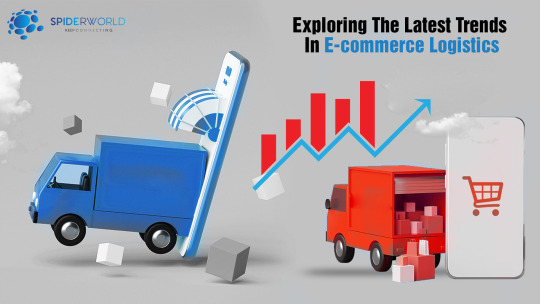Don't wanna be here? Send us removal request.
Photo

The importance of retention policy in a freight forwarder company:
Retention policy is an essential component of any freight forwarding company's HR strategy, and it is crucial for the following reasons:
Cost Savings: Retention policy helps to reduce costs associated with employee turnover. Turnover can be costly for businesses, as it requires time and resources to recruit and train new employees. Retention policy aims to retain employees by creating a positive work #environment, offering competitive salaries and benefits, and providing opportunities for growth and development.
Maintaining Customer Satisfaction: Freight forwarding companies rely heavily on maintaining strong relationships with customers. High employee turnover can negatively impact customer relationships, as customers may become frustrated with having to work with new contacts and having to re-explain their needs and requirements. Retention policy can help to ensure that employees remain in their roles for longer periods, reducing the risk of customer dissatisfaction due to employee turnover.
Employee Knowledge and Expertise: Freight forwarding is a complex industry that requires specialized knowledge and expertise. #Retentionpolicy helps to retain employees who have gained valuable experience and knowledge in their roles, thereby preserving this expertise within the company. This can be particularly important in situations where a customer requires specialized knowledge or when handling complex shipments.
Maintaining Company Culture: Retention policy helps to preserve a company's culture by ensuring that employees remain with the company for longer periods. #Company culture can have a significant impact on employee engagement and job satisfaction, and companies with strong cultures tend to attract and retain top talent.
Maintaining Operational Continuity: #Freightforwarding companies require a high degree of operational continuity to ensure that shipments are delivered on time and in compliance with regulatory requirements. Retention policy helps to ensure that key employees remain with the company, reducing the risk of disruptions to operations due to employee turnover.
Overall, retention policy is crucial for freight forwarding companies to maintain a stable and knowledgeable workforce, maintain customer satisfaction, and reduce costs associated with employee turnover.
Do follow SpiderWorld Global limited
#freight logistics#trainsworldwide#warehouse#railways#haulage#intralogistics#cargo#freightforwarding#freight#freightforwarder#articlewriting#logistics business#Logistics Management#marketingdigital#freighttrain
1 note
·
View note
Photo

"5 Benefits of Joining a Logistics Network for Freight Forwarders"
There are several advantages for a freight forwarder of being part of a logistics network, including: Read More
Increased Business Opportunities: Joining a logistics network provides freight forwarders with access to a wider range of customers and markets. This can result in increased business opportunities and revenue streams for the freight forwarder.
Improved Efficiency: Logistics networks can provide freight forwarders with access to a range of tools and resources that can help to improve their efficiency and streamline their operations. For example, they may have access to advanced transportation management systems that can help to optimize routes and reduce transit times.
Access to Industry Expertise: Being part of a logistics network provides freight forwarders with access to industry expertise and knowledge. This can help them to stay up-to-date with the latest trends and technologies in the logistics industry and make informed decisions that can help to improve their business.
Increased Visibility: Joining a logistics network can increase the visibility of a freight forwarder's business. This can be particularly beneficial for smaller freight forwarders that may struggle to compete with larger companies. By being part of a network, they can benefit from the network's marketing and advertising efforts and increase their visibility in the marketplace.
Cost Savings: Logistics networks often have negotiated rates with carriers and other service providers. This can help to reduce costs for freight forwarders and make them more competitive in the marketplace. Additionally, they may be able to benefit from shared resources, such as warehousing and distribution centers, which can help to reduce costs even further.
For More Detail, Visit: https://spiderworld.net/
1 note
·
View note
Photo

Discover the Benefits of Freight Insurance: Protect Your Cargo During Transit
Freight insurance is a type of insurance that covers loss or damage to cargo during transportation. It is important because cargo can be exposed to various risks during transit, including theft, damage, or loss due to accidents, natural disasters, or other unforeseen circumstances. Freight insurance provides financial protection to both the shipper and the carrier in the event of loss or damage to cargo.
There are different types of freight insurance, including all-risk insurance, which covers any accidental loss or damage to the cargo, and specific-risk insurance, which covers only certain risks or perils that are specified in the policy. The coverage and premiums of freight insurance depend on various factors, such as the value of the cargo, the mode of transportation, the route, and the type of cargo.
Freight insurance is important for several reasons. Firstly, it protects the financial interests of both the shipper and the carrier by providing compensation for any losses or damages incurred during transit. Secondly, it can help mitigate the risk of financial loss and uncertainty in the supply chain. Thirdly, it can enhance the credibility and reputation of the carrier, as it demonstrates their commitment to safe and secure transportation.
Without freight insurance, the shipper and the carrier could face significant financial losses if the cargo is lost, damaged, or stolen during transit. In addition, it could lead to legal disputes and damage the business relationship between the shipper and the carrier. Therefore, freight insurance is an essential component of any freight forwarding operation, as it provides a safety net for both the shipper and the carrier in the event of unexpected events.
SpiderWorld brings a special discount on marine insurance for our valuable new members globally and also gives lots of benefits that will help you generate profit for your organization.
For More Detail, Visit:
https://spiderworld.net/
#freight#freight logistics#logistics#marine#marineinsurance#supplychain#insurance#shippingcontainers#shippingworldwide#logisticsnetwork
1 note
·
View note
Photo

Market Analysis of Freight Forwarders
The growth of international trade has a significant impact on the freight forwarding market. Freight forwarding companies play a crucial role in facilitating the movement of goods across borders, by providing a range of services such as customs clearance, documentation, packaging, and transportation. The increase in global trade volume creates more demand for these services, which drives the growth of the freight forwarding market.
The freight forwarding market is expected to grow at a compound annual growth rate (CAGR) of 3.1% from 2020 to 2027, and reach a market size of $224.78 billion by 2027.
The freight forwarding industry was undergoing significant changes due to several factors, such as:
E-commerce: The rapid growth of e-commerce has increased the demand for freight forwarding services, as more businesses look to expand their reach and sell their products globally. E-commerce has also led to changes in logistics requirements, such as the need for faster and more reliable shipping options.
Technological Advancements: Advancements in technology, such as blockchain, artificial intelligence, and the Internet of Things, are transforming the freight forwarding industry. These technologies are improving efficiency, increasing transparency, and reducing costs.
Global Trade: Despite the COVID-19 pandemic and trade tensions between countries, global trade continues to grow. This growth is driving demand for freight forwarding services as businesses look to import and export goods across borders.
Sustainability: Environmental concerns are increasingly important in the freight forwarding industry. Companies are adopting sustainable practices, such as reducing emissions, using more efficient transportation modes, and using eco-friendly packaging materials.
Overall, the freight forwarding industry is expected to continue to grow in the coming years. However, companies will need to adapt to changing market conditions and adopt new technologies and sustainable practices to remain competitive.
Let's Join SpiderWorld and grow together
More Detail Visit:- SpiderWorld Logistic Network
#freight forwarding#supply chain#warehousing#logistics#trendingnews#ecommerce#globalization#warehouse#trendingpost#freighttransportation#logisticsnetwork#freightagent#logisticsolutions#shippingcontainers#automation#ecommerece#logisticsmarket
1 note
·
View note
Photo

Sustainability in freight forwarding: challenges and opportunities Sustainability has become a major concern in the freight forwarding industry as customers increasingly demand environmentally responsible practices. Here are some challenges and opportunities related to sustainability in freight forwarding:
Challenges:
Limited visibility: The complex nature of supply chains and the lack of transparency in transportation networks make it difficult for freight forwarders to track the environmental impact of their operations.
Regulatory compliance: Freight forwarders must comply with a range of environmental regulations, such as emissions standards, fuel efficiency requirements, and waste disposal regulations, which can be complex and costly to implement.
Cost implications: Sustainable practices often require significant investment in new technology, equipment, and processes, which can be expensive for freight forwarders, particularly small and medium-sized enterprises.
Limited awareness: Some freight forwarders may not fully understand the benefits of sustainable practices, or may not be aware of the latest technologies and techniques available to reduce their environmental footprint.
Opportunities:
Green technologies: Freight forwarders can adopt new technologies such as electric vehicles, alternative fuels, and energy-efficient equipment to reduce their environmental impact.
Collaboration: Freight forwarders can work with their customers, carriers, and other stakeholders in the supply chain to develop sustainable practices and share knowledge and resources.
Innovation: Freight forwarders can explore new business models and innovative approaches to reduce their environmental footprint, such as circular supply chains, low-carbon logistics, and sustainable packaging.
Competitive advantage: Adopting sustainable practices can provide a competitive advantage for freight forwarders, attracting environmentally conscious customers and enhancing their reputation as responsible corporate citizens.
In summary, sustainability poses significant challenges for the freight forwarding industry, but also presents opportunities for innovation, collaboration, and competitive advantage. Freight forwarders that embrace sustainable practices can position themselves for long-term success in a rapidly evolving business landscape.
Do follow us: 𝐋𝐢𝐧𝐤𝐞𝐝𝐢𝐧:- https://lnkd.in/dDPayNqD 𝐅𝐚𝐜𝐞𝐛𝐨𝐨𝐤:- https://lnkd.in/dhepw6qM 𝐈𝐧𝐬𝐭𝐚𝐠𝐫𝐚𝐦:- https://lnkd.in/dW8UHay9 𝐘𝐨𝐮𝐭𝐮𝐛𝐞:- @spiderworldglobal 𝐓𝐰𝐢𝐭𝐭𝐞𝐫:- https://lnkd.in/dGUjQKGs Do Visit:- 🌏 https://spiderworld.net/
#entrepreneurship#freight forwarding#shippingworldwide#shipping#internationaltrade#sustainability#custom#innovation#logisticsandsupplychain#supplychain#supplychainsolutions#ecommerce#globalization#warehouse#trendin#TrendingPost#trending new#LogisticsManagement#logistics news#photooftheday#challenger
2 notes
·
View notes
Photo

Latest Trends in E-commerce Logistics
E-commerce logistics refers to the process of managing and shipping goods for online retailers. As e-commerce continues to grow, efficient logistics processes are becoming increasingly important for businesses to remain competitive and meet customer expectations.
One important aspect of e-commerce logistics is order fulfillment. This involves picking and packing items from a warehouse or distribution center and preparing them for shipping. To speed up this process, many companies are investing in automation technologies such as robots and conveyor systems.
Here are some current trends in e-commerce logistics:
Same-Day and Next-Day Delivery: Customers are increasingly expecting faster shipping times, and many e-commerce companies are responding by offering same-day or next-day delivery options. This trend is driving the adoption of new technologies such as drones and autonomous vehicles.
More Flexible Delivery Options: Customers are also expecting more flexibility in their delivery options. Many e-commerce companies are now offering options such as in-store pickup, lockers, and even delivery to the trunk of a customer's car.
Increased Use of Data Analytics: E-commerce logistics companies are using data analytics to optimize their processes and improve efficiency. By analyzing data on customer behavior, inventory levels, and delivery times, companies can make more informed decisions and improve their operations.
Sustainability and Green Logistics: E-commerce companies are increasingly focused on sustainability and are looking for ways to reduce their carbon footprint. This includes adopting more fuel-efficient transportation methods, using renewable energy sources, and optimizing routes to reduce emissions.
Automation and Robotics: Automation and robotics are becoming increasingly important in e-commerce logistics. Companies are using robots for tasks such as order picking and packing, and are also using automated systems to optimize warehouse layout and improve inventory management.
Blockchain Technology: Blockchain technology is being explored as a potential solution for improving transparency and traceability in e-commerce logistics. By using blockchain to track goods throughout the supply chain, companies can improve security and reduce the risk of fraud.
For latest updates, offers and upcoming events do follow
SPIDERWORLD GLOBAL NETWORK
#logistics#logistic management#freight forwarding#freight#ai generated#sales#TrendingPost#trending news#freight forwarder#warehousing#supplychain#Business Development Manager
1 note
·
View note
Photo

Navigating the Pros and Cons of Supply Chain Risk Management
Supply chain risk management is the process of identifying, assessing, and mitigating risks in the supply chain to ensure continuity of operations and minimize disruption. Strategies include diversification, technology solutions, effective communication, and regular reviews of the risk landscape.
The advantages of supply chain risk management include:
Improved resilience: Effective risk management can make a supply chain more resilient, reducing the impact of any disruptions.
Cost savings: By identifying and mitigating risks, businesses can reduce the costs associated with supply chain disruptions, such as lost sales, production delays, and increased transportation costs.
Enhanced reputation: A robust risk management strategy can enhance a company's reputation, demonstrating to customers and stakeholders that it takes supply chain risks seriously.
Competitive advantage: Businesses that have effective risk management strategies in place may have a competitive advantage over those that don't, as they are better equipped to deal with any disruptions.
The disadvantages of supply chain risk management include:
Cost: Implementing effective risk management strategies can be expensive, requiring investment in technology, resources, and personnel.
Complexity: Supply chains are complex, and managing the risks associated with them can be challenging. Businesses need to have a deep understanding of the supply chain and its stakeholders to develop effective risk management strategies.
Uncertainty: Supply chain risks are inherently uncertain, and it can be difficult to predict and manage all potential risks.
Over-reliance on technology: While technology solutions can be effective in managing supply chain risks, there is a risk of over-reliance, which can lead to complacency and a lack of preparedness in the event of a disruption.
In conclusion, supply chain risk management is a crucial aspect of any business that relies on the delivery of goods or services. By identifying, assessing, and mitigating risks, businesses can ensure continuity of operations and minimize disruption. Strategies such as diversification, technology solutions, effective communication, and regular reviews can all help to manage supply chain risks and ensure long-term success.
Do Follow SpiderWorld For More Inforamtion
#logistics#freight forwarding#busienss news#marketing#network#cargo#cargo services#trending#trending new#Supply chain
2 notes
·
View notes
Photo

Freight Forwarding vs. Shipping Lines:
Freight forwarding and shipping lines are two essential components of the global logistics industry. While both terms are often used interchangeably, they refer to different entities in the supply chain. In this article, we'll discuss the key differences between freight forwarding and shipping lines.
Freight forwarding is a service that helps shippers move goods from one point to another. Freight forwarders act as intermediaries between shippers and carriers, coordinating the movement of goods across various modes of transportation. They are responsible for arranging the transportation of goods, negotiating rates with carriers, and handling the necessary documentation for international shipments.
Freight forwarders offer a range of services, including:
Providing shipping advice and guidance on regulations and customs requirements
Arranging for the collection, storage, and transportation of goods
Coordinating the movement of goods across different modes of transportation
Handling the necessary documentation, such as bills of lading and customs clearance paperwork
Providing insurance and other value-added services
Shipping lines,
also known as ocean carriers, are companies that operate ships for transporting goods via sea. They provide the physical means of transporting goods across the ocean, including containers, vessels, and other shipping equipment.
Shipping lines offer a range of services, including:
Providing shipping schedules and vessel availability
Loading and unloading cargo at ports
Providing container equipment for shipment
Handling documentation related to ocean transportation, such as bills of lading and cargo manifests
Key Differences The primary difference between freight forwarders and shipping lines is that freight forwarders are intermediaries that coordinate the transportation of goods across different modes of transportation, whereas shipping lines are responsible for the physical transportation of goods via sea. Freight forwarders can work with multiple carriers and shipping lines to find the best routes and rates for their customers.
Another difference is that freight forwarders offer a more comprehensive range of services, including documentation, customs clearance, and insurance. Shipping lines, on the other hand, typically focus on the physical transportation of goods and do not offer as many value-added services.
In conclusion, while freight forwarding and shipping lines are both essential components of the global logistics industry, they offer different services and play different roles in the supply chain. Shippers should understand these differences to choose the right service providers for their logistics needs
Freight Forwarding & Logistics Get Freight Freight Forwarder
#trending#news and trends#trendingpost#logistic management#logisticsandsupplychain#tumblelog#trending news#information#freight#freightforwarding#article#air freight#ship#shippingworldwide#find the difference#supplychain#popular
1 note
·
View note
Link
𝟕 𝐑'𝐬 𝐢𝐧 𝐥𝐨𝐠𝐢𝐬𝐭𝐢𝐜𝐬 𝐭𝐡𝐚𝐭 𝐜𝐚𝐧 𝐡𝐞𝐥𝐩 𝐛𝐮𝐬𝐢𝐧𝐞𝐬𝐬𝐞𝐬 better manage their supply chain, reduce costs, and improve customer satisfaction and profitability
For Latest Updates follow spiderworld click the link below:- https://spiderworld.net/
#logistics business#business development manager#ceo#enterprise#logistics billing#sea freight#supplychain#warehouse#airfreight#global network#global logistics network#entrepreneurship#smallbusiness#logistics#cargo services
1 note
·
View note
Video
tumblr
The significance of logistics in the market: you must know about the importance logistics do check the link below:- Main Role of logistics
3 notes
·
View notes
Link
Insurance which a vital role in logistics you must know .. WATCH IT!
#insurance#marine#logistic network#safet#life#freigth#sea freight#freight forwader#business#freight management
1 note
·
View note
Photo

There are Six commonly recognized pillars of logistics:
Planning: Planning is the first and most critical pillar of #logistics. It involves determining the objectives of logistics operations, developing a strategy to achieve those objectives, and identifying the resources required to execute the plan. Effective planning helps ensure that the logistics operation runs smoothly and efficiently.
Execution: Execution is the second pillar of logistics, which involves the actual implementation of the logistics plan. It involves coordinating the movement of goods, managing inventory levels, scheduling #transportation, and ensuring that all logistics activities are executed on time and within budget.
Monitoring: Monitoring is the third #pillaroflogistics, which involves tracking the performance of the logistics operation to ensure that it is meeting its objectives. This includes measuring key performance indicators (KPIs) such as #inventory levels, order fulfillment rates, and delivery times, and taking corrective actions when necessary.
Optimization: Optimization is the fourth and final pillar of logistics, which involves continuously improving the logistics operation to increase efficiency and reduce costs. This can be achieved through the use of technology, process improvements, and supply chain collaboration. By optimizing the logistics operation, companies can gain a competitive advantage and improve customer satisfaction.
Information Management: This refers to the use of technology and data to optimize logistical operations. It includes using software and systems to track inventory, monitor shipments, and analyze data to make informed decisions.
Sourcing: This refers to the process of finding suppliers and negotiating contracts for the procurement of raw materials, components, and finished goods.
#articlewriting hashtaglogistics hashtagfreightforwarding hashtagfreightservices hashtagsupplychainmanagement hashtagsupplychainsolutions has#articlewriting#global logistics network#logistics management#freight#ocean#ocean freight#logisticsandsupplychain#supply chain management#trending#viral on internet#logisticsbusiness#logistics#logistics news#global news
1 note
·
View note
Photo

Strategic Partnerships In Logistics To Improve Profits :
Strategic partnerships in logistics can be an effective way to improve profits for businesses. By partnering with other companies in the logistics industry, businesses can leverage their combined resources and expertise to create more efficient and cost-effective supply chain solutions.
Here are some ways in which strategic partnerships in logistics can help improve profits:
Cost savings: By sharing resources such as transportation, warehousing, and technology, businesses can reduce costs and increase efficiency. This can result in lower prices for customers and higher profits for the companies involved.
Access to new markets: Strategic partnerships can provide businesses with access to new markets and customers. This can help them expand their reach and increase sales, leading to higher profits.
Improved service levels: By partnering with companies that specialize in different aspects of logistics, businesses can improve their service levels. For example, a company that specializes in warehousing can partner with a company that specializes in transportation to create a more efficient supply chain that delivers products faster and more reliably.
Innovation: By working together, companies can pool their resources and expertise to develop new products and services that can improve logistics processes and increase profits.
Visit :- SpiderWorld Logistic Network
#partnerships#logistics#logisticsmanagement#logisticsbusiness#freightforwarding#freightforwarder#freightsolutions#growtogether#influencermarketing#logisticsandsupplychain#supplychainsolutions#growth marketing#marketing#trending#breaking news
1 note
·
View note
Photo

Technology Is Transforming The Future Of Logistics:
Automation: The use of automation, such as robotics and autonomous vehicles, is increasing efficiency and reducing the need for human labor. This technology allows for the quicker and more accurate loading, unloading, and sorting of goods.
Predictive Analytics: Predictive analytics can help logistics companies anticipate demand and plan accordingly, allowing them to optimize inventory management and reduce waste.
Big Data: Big data analytics can be used to analyze supply chain data to optimize routes, improve delivery times, and reduce fuel consumption.
Internet of Things (IoT): IoT technology can be used to monitor and track goods throughout the entire supply chain. This allows logistics companies to provide real-time updates on the location and condition of goods, improving transparency and reducing the risk of theft or damage.
Blockchain: Blockchain technology can be used to create a secure and transparent record of all transactions in the supply chain. This helps to reduce fraud, increase efficiency, and improve the overall traceability of goods.
Augmented Reality (AR): AR technology can be used to enhance warehouse operations by providing workers with real-time information about the location of goods, reducing the time and effort required to locate specific items.
Overall, technology is transforming the logistics industry, making it more efficient, cost-effective, and environmentally friendly. As technology continues to advance, we can expect to see even more significant changes in the future of logistics.
FOR MORE UPDATES DO FOLLOW SPIDERWORLD GLOBAL
#technology#future#logistics#freight forwader#logistic management#business development manager#influencer#blogging#information#updates#trending#trendingpost#ceo
1 note
·
View note
Photo

Future of Freight Forwarding: Trends and Predictions
SpiderWorld tells you that the freight forwarding industry has seen significant changes over the past few decades, and the future looks just as promising with emerging trends and innovations. With the increasing globalization of trade and the rapid advancements in technology, the freight forwarding industry is evolving to keep up with demand.
Digitization: Technology is playing a critical role in the future of freight forwarding. The digitization of processes and the use of digital platforms are expected to increase efficiency and transparency in the industry. Freight forwarders are investing in cloud-based systems and automation tools to streamline operations, reduce errors and enhance customer experience.
Sustainability: Environmental sustainability is becoming a significant consideration for freight forwarding companies. With the increasing focus on reducing carbon emissions, freight forwarders are looking for ways to reduce the carbon footprint of their operations. This includes the use of electric vehicles, alternative fuels, and optimizing shipping routes to reduce fuel consumption.
Integration of Services: Customers are increasingly demanding a one-stop-shop for their logistics needs. Freight forwarding companies are responding by offering integrated services that cover the entire supply chain, including warehousing, customs clearance, and transportation. This integration allows shippers to simplify their logistics management and reduce costs.
Use of Artificial Intelligence: The use of artificial intelligence (AI) is expected to revolutionize the freight forwarding industry. AI-powered solutions can help optimize freight routes, track shipments, and reduce errors in documentation. This technology can also help freight forwarders to anticipate and mitigate supply chain disruptions.
Blockchain: Blockchain technology has the potential to transform the freight forwarding industry by providing a secure and transparent platform for transactions. Freight forwarders can use blockchain to track goods in real-time, reduce paperwork, and improve communication with customers and partners.
Expansion of E-commerce: The growth of e-commerce is expected to continue in the future, and this will have a significant impact on the freight forwarding industry. E-commerce companies will require fast and reliable shipping options to meet the expectations of their customers. Freight forwarders will need to adapt their services to meet the demands of this growing market.
In conclusion, the future of freight forwarding looks bright with emerging trends and innovations that are set to revolutionize the industry. Freight forwarders who embrace these changes and invest in the right technology and processes will be well-positioned to meet the evolving needs of their customers and succeed in the marketplace.
Join SpiderWorld Most Young & Unique Logistics Global Network
#freight#influencer#marketing#logistics#warehouse#logisticmanagment#supplychain#information#trending#article#networking#business#ceo#manager
1 note
·
View note
Link
In this video you will come to know some important things before loading logistics container and also we need to know that proper planning and organization are key to successful logistic loading. This includes determining the appropriate vehicle for the shipment, ensuring that the goods are properly packaged and labeled and full security, and coordinating with the delivery destination to ensure that there are no delays. More Detail Visit:- https://spiderworld.net/
#logistcs#freight#freight forwarding#freight forwarder#supply chain#container#air freight#warehousing#global network#logistik#network
1 note
·
View note
Photo

#SpiderWorld conduct yearly #events for our valuable #members where association and meeting in person will take place. We do a #GlobalConference where every member will have equal opportunity to travel and meet their members in person and exchange business talks! We believe this is your #Business Investment with your #partners.#logisticnetwork #globalnetwork #supplychain #freightforwarder #logisticscompany #warehousing #logistics #networking
Join Now & Be A Part Of SpiderWorld GLobal #Network
More Detail Visit:-https://spiderworld.net/
#global network#network#logistic network#warehouse#Supply chain#conferenceroom#members#prime#global logistics network#global news
1 note
·
View note